2023 Celebration of Faculty Excellence Biographies
The Celebration of Faculty Excellence is held each spring to recognize outstanding faculty who have received prestigious awards, accolades or other distinctions throughout the academic year.
Alexander Quarles Holladay Medal for Excellence
Jerzy (Jerry) Bernholc
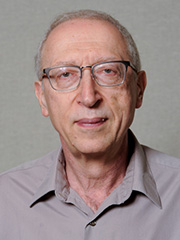
Dr. Bernholc, the Drexel Professor in the Department of Physics, earned his Ph.D. in physics from the University of Lund, Sweden. He established a world-class theoretical program in materials physics and formed one of the country’s largest and best-funded academic research groups. Bernholc co-founded the Center for High Performance Simulation or ChiPS at NC State, and served as its director until 2017. CHiPS was formed to consolidate high-performance computing and simulation expertise across departments and nurture interdisciplinary interactions and proposals. Since 2002, he has served as a Visiting Distinguished Scientist at the Oak Ridge National Laboratories, initiating and collaborating on many joint ORNL-NC State funding initiatives and grants, as well as advising ORNL’s management. Bernholc’s research endeavors are extensive and varied, as evidenced by his work on novel forms of carbon, semiconductor physics, polymers for energy applications, computational biology, cutting-edge computational methods, and computational materials science. Bernholc is a Fellow of the American Association for the Advancement of Science, the American Physical Society (APS) and the Materials Research Society. He received the Albert Nelson Marquis Who’s Who Lifetime Achievement Award, the Jesse Beams Award for Outstanding Research from the APS and the NC State Alumni Outstanding Research Award. He has served as chair of the Division of Computational Physics of the APS and is listed in Who’s Who in America and Who’s Who in the World.
Mary Haskett
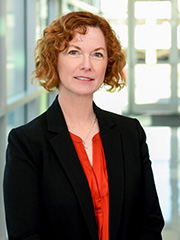
Dr. Haskett, a professor in the Department of Psychology, earned her Ph.D. in clinical and school psychology from Florida State University. She currently leads a stellar team that addresses critical problems through translational science and engages in extension that benefits the public health and welfare of citizens. Haskett’s research focuses on the causes, consequences and treatment of adverse experiences in early childhood, particularly maltreatment and family homelessness. She co-founded three major initiatives to translate her scholarship to direct support for vulnerable children and families: Project CATCH (Community Action Target Children who are Homeless) with the Salvation Army of Wake County; Project REACH (Resilience, Empowerment, Access for Children Experiencing Homelessness) with Passage Homes of Wake County; and Yay Babies NC, which promotes access to early childhood services for young children experiencing homelessness in partnership with the Child Care Services Association of North Carolina. Known as a fierce advocate for under-resourced students, Haskett is co-chair of the NC State Steering Committee on Student Food and Housing Security and serves as the higher education representative to the Wake County Affordable Housing Work Group. She also promotes solutions to college student homelessness through her leadership in a City of Raleigh/NC State partnership via the National League of Cities: College Student Basic Needs Initiative. Haskett’s engagement has been recognized through numerous awards including the NC State Outstanding Extension Award, the Campus Sustainability Achievement Award from the Association for the Advancement of Sustainability in Higher Education, and the Chancellor’s Creating Community Award from the Office for Institutional Equity and Diversity. She has also been elected as a Fellow of the American Psychological Association.
UNC Board of Governors Award for Excellence in Teaching
Jason Bocarro
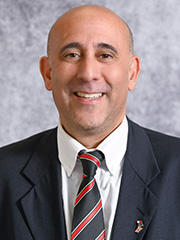
Dr. Bocarro, the Owens-Shelton Distinguished Professor for Leadership with a Global Perspective in the Department of Parks, Recreation and Tourism Management, earned his Ph.D. in recreation, parks and tourism sciences from Texas A&M University.. In the 17 years that Bocarro has been at NC State, he has set a standard of excellence in his field and has distinguished himself as an innovative educator, researcher and dedicated mentor. His teaching philosophy revolves around building strong relationships with his students and he is a strong advocate of fostering connections with students and other collaborators. Bocarro’s research focuses on the intersection of human health and inactivity, and his studies have been funded by the Robert Wood Johnson Foundation, the Centers for Disease Control and Prevention, the National Park Service, the National Recreation and Park Association, and other sport-governing bodies. Bocarro has published more than 75 peer-reviewed research journal articles, while also co-authoring book chapters and contributing to practitioner-based publications. His many awards include the NC State Outstanding Teacher Award, the Alumni Distinguished Undergraduate Professor Award and the Outstanding Faculty in Extension and Engagement Award. He is a University Faculty Scholar and was inducted into the Academy of Leisure Sciences.
Governor James E. Holshouser, Jr. Award for Excellence in Public Service
Bonnie Fusarelli
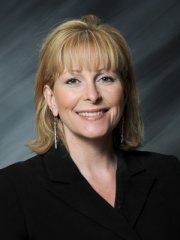
Dr. Fusarelli, a professor in the Department of Educational Leadership, Policy, and Human Development, earned her Ph.D. in educational administration and policy from Pennsylvania State University. A University Faculty Scholar in the College of Education, Fusarelli is a champion for school leaders across the state. Her research focuses on educational leadership and policy, the politics of school improvement, educational equity and organizational change. She has secured more than $41 million in grant and private funding for programs to support the state’s educational leaders. Fusarelli also collaborated with the North Carolina General Assembly and local school systems to address needs for strong principal preparation programs and alternative licensing. She is program coordinator for NC State’s Educational Leadership program and director of NC State’s Leadership Academies, which are nationally recognized as innovative and effective at preparing school leaders for high-need schools.
Provost’s Award for Excellence in Teaching
Miles Engell
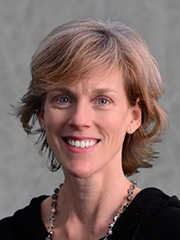
Dr. Engell, a teaching professor in the Department of Biological Sciences, earned her Ph.D. in zoology from NC State. Engell has been teaching at NC State since 2006 and is known as an outstanding professor who engages and challenges her students by applying real examples of animal behavior research to the topic addressed. Her teaching philosophy focuses on achieving student success while also challenging students and fostering a sense of community. As a mentor, she works with undergraduate students on honors projects; with graduate students on their research and writing; and she regularly serves as the academic advisor to approximately 35 undergraduate students. Engell strives to guide and encourage each individual student on their personal journey. Her awards include the NC State Outstanding Teacher Award and the Alumni Distinguished Undergraduate Professor Award.
American Association for the Advancement of Science Fellow
Jacqueline Hughes-Oliver
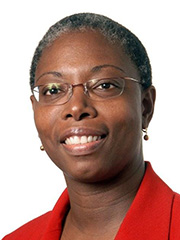
Dr. Hughes-Oliver, a professor in the Department of Statistics, earned her Ph.D. in statistics from NC State. Hughes-Oliver was selected as an American Association for the Advancement of Science Fellow for her distinguished contributions to cheminformatics and statistics, teaching and mentoring of students, and outreach efforts to expand diversity in the statistical and mathematical sciences. Her methodological research areas include prediction modeling, variable and model selection with dimension reduction, design of experiments, and spatial modeling. Hughes-Oliver application areas include cheminformatics and drug discovery, ontology-guided genomics and metabolomics, and effect of point sources.
Sindee Simon
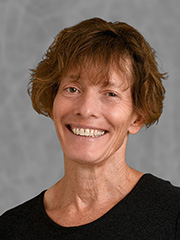
Dr. Simon, a Distinguished Professor and head of the Department of Chemical and Biomolecular Engineering, earned her Ph.D. in chemical engineering from Princeton University. Simon was selected as an American Association for the Advancement of Science Fellow for her transformational contributions to materials, physics and chemistry, particularly for novel experiments and modeling of non-equilibrium behavior of glasses and the impact of nanoconfinement on phase transitions and polymerization kinetics. Simon’s research focuses on the physics and chemistry of polymers and glass-forming materials through innovative experiments, unique instrumentation, and strong mathematical modeling.
Deyu Xie
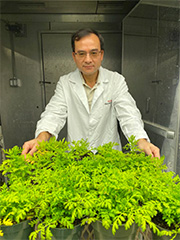
Dr. Xie, a professor in the Department of Plant and Microbial Biology, earned his Ph.D. in plant physiology and plant molecular biology from the Institute of Botany, Chinese Academy of Sciences. Xie was selected as an American Association for the Advancement of Science Fellow for her distinguished contributions to the field of metabolic biology by discovering new information that solved historic questions in plant flavonoids and developed engineering biotechnology to improve crops with better nutritional values for human and animal health. His research is centered on structures, biosynthesis and metabolic engineering of natural plant products for human, animal, and plant health.
American Society of Mechanical Engineers Heat Transfer Memorial Award
Srinath Ekkad
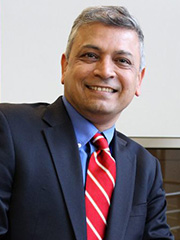
Dr. Ekkad, an R.J. Reynolds Professorand head of the Department of Mechanical and Aerospace Engineering, received his Ph.D. in mechanical engineering from Texas A&M University. Ekkad received the American Society of Mechanical Engineers Heat Transfer Memorial Award for his outstanding contributions to the field of heat transfer, particularly for promotion of community education and engagement through the co-authoring of a textbook, conference organization, and journal editing; and for pioneering applications of experimental methods in gas turbine heat transfer. His areas of research include experimental heat transfer methods, enhanced heat transfer for turbine blade cooling, advanced system diagnostics, energy harvesting, micro-channel heat exchangers, electronic cooling, and additive manufacturing design for thermal systems.
Fulbright U.S. Scholars
Karen Daniels
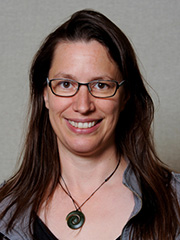
Dr. Daniels, a Distinguished Professor in the Department of Physics, earned her Ph.D. in physics from Cornell University. Daniels will be using her Fulbright Scholar Award for an extended visit to the Indian Institute of Science in Bangalore, India, where she will perform experiments on granular materials at the intersection of her physics interests, and the engineering goals of her host institute. Daniels will share experimental techniques through both teaching and research. Her area of research focuses on physics of soft materials, including fracture, flow and deformation.
Colleen Doherty
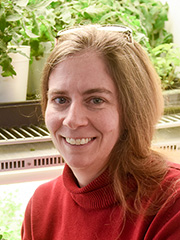
Dr. Doherty, an associate professor in the Department of Molecular and Structural Biochemistry, received her Ph.D. in biochemistry and molecular biology. Doherty will be using her Fulbright Scholar Award to study how to use plants to recover rare earth elements from coal and energy wastes at the University of York in the United Kingdom. Her research through the Doherty Lab seeks to understand how plants integrate signals from the environment when making decisions, and focuses on how plants integrate time into the molecular and biochemical responses to abiotic stress.
Jean Ristaino
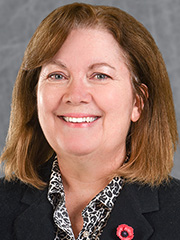
Dr. Ristaino, a William Neal Reynolds Distinguished Professor in the Department of Entomology and Plant Pathology, earned her Ph.D. in plant pathology from the University of California, Davis. Ristaino received her Fulbright Scholar Award to conduct research in Ireland on the Phytophthora infestans that caused the Irish potato famine. She will also examine mycological herbaria and archival records from the Glasnevin Botanic Gardens and conduct diagnostic workshops and lectures. Ristaino plans on completing her book, “The Potato Plague,” on the disease pandemic that decimated the Irish population.
Charles Smith
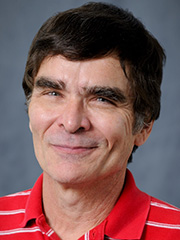
Dr. Smith, an associate professor in the Department of Statistics, earned his Ph.D. in biophysics and theoretical biology from the University of Chicago. Smith received his Fulbright Scholar Award to conduct research on statistical and stochastic modeling of postural sway during quiet standing in health and disease at Osaka University’s School of Engineering Science in Suita, Japan. Smith’s areas of expertise include neurobiology, stochastic processes and physiological models.
Jefferson Science Fellowship
Richard Spontak
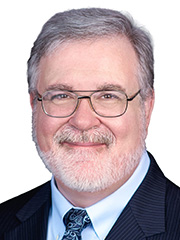
Dr. Spontak, a Distinguished Professor in the Department of Chemical and Biomolecular Engineering, earned his Ph.D. in chemical engineering from the University of California, Berkeley. The Jefferson Science Fellowship is an innovative model for engaging the American academic science, technology, engineering, and medical communities in U.S. foreign policy and international development. Spontak will spend one year on assignment at the U.S. Department of State serving as an adviser on issues of foreign policy and international development regarding Eastern Asia. His assignments will be tailored to the needs of the host office, while taking into account his interests and expertise.
National Academy of Inventors Fellow
Yuntian Zhu
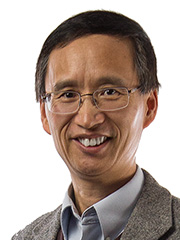
Dr. Zhu, a Distinguished Professor Emeritus in the Department of Materials Science and Engineering, earned his Ph.D. in materials science and engineering from the University of Texas, Austin. Zhu was elected as a National Academy of Inventors Fellow for his inventions that have had a profound impact on public welfare. The ultrafine, grained and heterostructured pure titanium is currently being commercialized in the U.S. and Europe for dental and other medical implants. Ultra-strong and tough heterostructured steels are being commercialized by major steel companies for the auto industry. Their high strength reduces the weight of automobiles, which will improve their energy efficiency.
National Academy of Inventors Senior Member
Afsaneh Rabiei
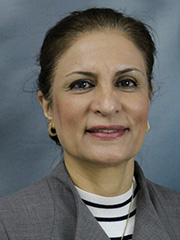
Dr. Rabiei, a professor in the Department of Mechanical and Aerospace Engineering, earned her Ph.D. in advanced science and technology and advanced materials from the University of Tokyo. Rabiei is among 430 Senior Members affiliated with National Academy of Inventors member institutions all over the world. She is recognized as a rising leader with success in patents, licensing, and commercialization and for producing technologies that have brought, or aspire to bring, real impact on the welfare of society. Rabiei’s main areas of research are advanced materials, manufacturing, characterization and failure analysis. She teaches students by using hands-on experiences to address the needs for the next generation of safer and more efficient structures.
National Inventors Hall of Fame
Rodolphe Barrangou

Dr. Barrangou, the Todd R. Klaenhammer Distinguished Professor in Probiotics Research in the Department of Food, Bioprocessing and Nutrition Sciences, earned his Ph.D. in functional genomics from NC State. Barrangou, along with fellow National Inventors Hall of Fame inductee Philippe Horvath, senior scientist at DuPont Nutrition and Health, discovered that Clustered Regularly Interspaced Short Palindromic Repeats (CRISPR) sequences and associated proteins comprise an acquired immune system in bacteria. Applying their research to create better starter cultures for the dairy industry, they improved the world’s food supply while laying the foundation for the burgeoning field of gene editing.
National Endowment for the Humanities Fellow
Kristen Alff
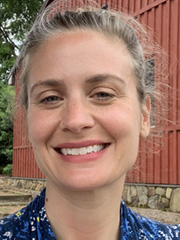
Dr. Alff, an assistant professor in the Department of History, earned her Ph.D. in history from Stanford University. She was awarded a National Endowment for the Humanities Fellowship for her project, titled “Levantine Joint-Stock Companies and Capitalism 1850-1930,” traces the business practices of Beirut-based companies to challenge Eurocentric definitions of capitalism. Alff researches Middle East History with a focus on the Levant and Egypt. She does so through the lens of global capitalism, business history, and political economy.
David Ambaras
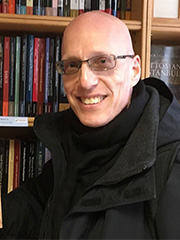
Dr. Ambaras,a professor in the Department of History, earned his Ph.D. in history from Princeton University. He was awarded aNational Endowment for the Humanities Fellowship for his project, titled “Maritime Connections and Japanese World-making, 1950s-1960s.” The project explores the intertwined histories of ports, shipping, dockworkers, and seafarers during a critical moment in the history of postwar Japan, global capitalism, maritime transport, and the geopolitics of the Asia-Pacific. Ambaras’ areas of research are modern Japanese, Asian, and global history.
National Humanities Center Fellow
Xiaolin Duan
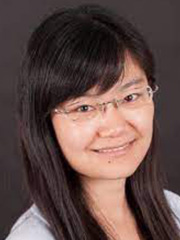
Dr. Duan, an associate professor in the Department of History, earned her Ph.D. in history from the University of Washington. Duan will use her National Humanities Center Fellowship to work on her project about the Pacific silk trade in the 16th and 17th centuries, which generated many connections and conflicts between the Ming dynasty and the Spanish Crown. Duan’s book will examine the interaction between the two from the perspective of urban space in Zhangzhou, Manila, and Mexico City. Her area of research includes medieval to early modern China and global history.
Frederico Freitas
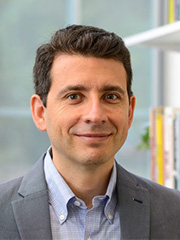
Dr. Freitas, an associate professor in the Department of History, earned his Ph.D. in history from Stanford University. Freitas’ National Humanities Center Fellowship project is titled “Concrete Tropics: An Environmental History of Brazil’s Modernist Capital.” It is a history of Brasília, Brazil’s new national capital built from scratch in the 1950s. His areas of research include the history of Latin America in the 19th and 20th centuries with a focus on the relationship between society and the environment.
National Science Foundation Faculty Early Career Development Award (CAREER)
Jordan Kern
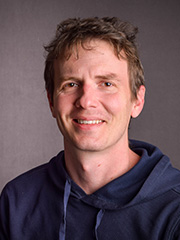
Dr. Kern, an assistant professor in the Department of Forestry and Environmental Resources, earned his Ph.D. in environmental science and engineering from the University of North Carolina, Chapel Hill. Kern’s CAREER Award project will explore two critical challenges for the electric power grid: rapidly reducing greenhouse gas emissions to meet climate targets; and managing our increasing vulnerability to extreme weather. Kern’s area of research focuses on energy systems analysis. His areas of expertise include stochastic modeling of coupled natural-human systems; water and energy systems analysis; and financial risk management.
David Rasmussen
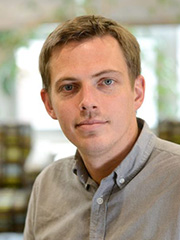
Dr. Rasmussen, an assistant professor in the Department of Entomology and Plant Pathology, earned his Ph.D. in biology from Duke University. Rasmussen’s CAREER Award project will explore how viruses surmount fitness tradeoffs between alternative hosts in order to expand their host range. He will use tomato spotted wilt virus, a major crop pathogen in North Carolina, as a model to explore how a single virus adapts to multiple hosts in agroecosystems. Rasmussen leads the Phylodynamics Research Group at NC State which develops new phylogenetic and computational methods for genomic epidemiology.
Nathan Crook
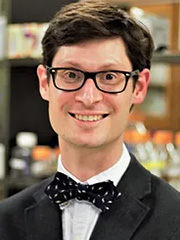
Dr. Crook, an assistant professor in the Department of Chemical and Biomolecular Engineering, earned his Ph.D. in chemical engineering from the California Institute of Technology. His CAREER Award project is “Engineering probiotic yeast to release intracellular molecules into the mammalian gut.” The goal of Crook’s project is to harness an individual’s own microbiome to manufacture therapeutic molecules in the gut. The Crook Lab develops new high-throughput experimental and computational genetic engineering techniques.